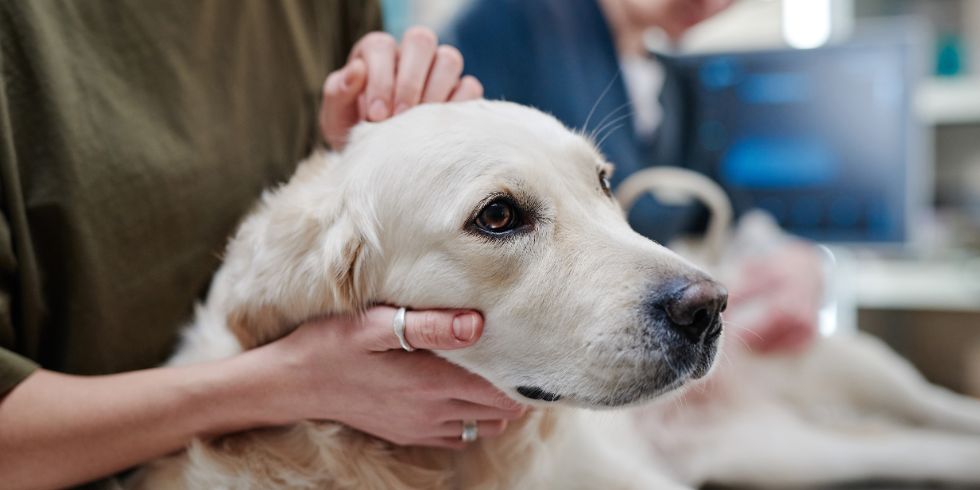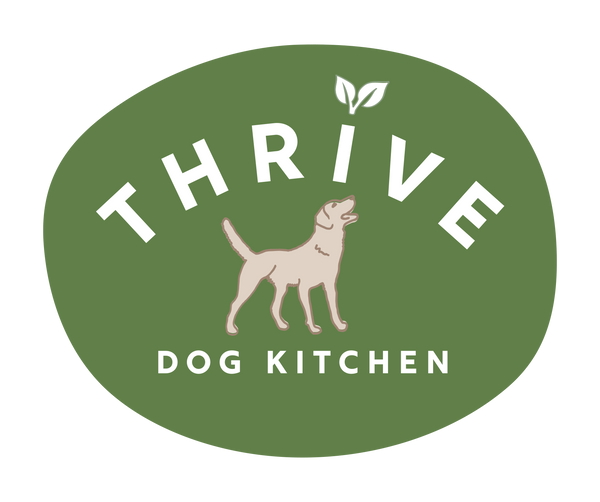
IBD in Dogs: Signs, Diagnosis & Solutuions
Share
Could Your Dog Have IBD? Here's What Every Pet Parent Should Know
Picture this: Your furry best friend, who's usually up for adventures and trail runs, starts having tummy troubles that just won't quit. As a dog parent, there's nothing worse than seeing your four-legged family member not feeling their best.
If you're noticing ongoing digestive issues in your pup, inflammatory bowel disease (IBD) might be the culprit – and I’m here to help you understand exactly what that means. I’ll break down what IBD is, its signs, how it’s managed, and how nutrition can play a role in helping your dog thrive.
What Is IBD in Dogs?
First things first: IBD isn't just a simple upset stomach. It's a chronic gastrointestinal disorder characterised by persistent inflammation of the intestinal tract. And while it shares some similarities with IBS (Irritable Bowel Syndrome), they're actually different conditions.
IBS is a chronic gastrointestinal issue, but without the inflammation. The exact cause of IBD isn’t fully understood, but environmental factors, genetics and diet are thought to play a role.
The Warning Signs Every Dog Parent Should Know
Your dog can't tell you when something's wrong, but their body language and behaviour can. IBD can look different in every dog, but some common symptoms include:
- Frequent vomiting
- Diarrhoea
- Unexplained weight loss
- Loss of appetite
- Lethargy or discomfort
What makes IBD tricky is that some dogs might seem perfectly happy and energetic at times, even when they're not feeling their best (we all know how good they are at putting on a brave face for us!). Taking note of persistent symptoms and consulting your vet is crucial.
Diagnosis & Who's at Risk?
Your veterinarian will likely perform a thorough physical exam, lab tests and fecal screenings to rule out other conditions. In some cases, biopsies may be required to confirm the diagnosis.
While IBD can affect any dog, some breeds are more prone to it, including:
- German Shepherd
- Shar-pei
- Soft-coated wheaten terrier
- Irish setter
- Boxer
- French bulldog
- Basenji
- Ludenhund
And while it typically shows up in adult dogs, even puppies aren't immune. Environmental factors, such as poor living conditions, like those found in puppy mills, may also contribute to its development.
The Game-Changer: Nutrition's Role in Managing IBD
Here's the good news: proper nutrition can make a world of difference for dogs with IBD. But we're not just talking about switching to any old food. The key is finding the right combination of:
- Highly digestible foods to ease the strain on their gut.
- Fibre-enhanced foods to normalise intestinal motility and support a healthy body condition.
- Novel proteins (think venison, duck, or rabbit) can reduce the risk of triggering and immune response
In some cases, managing IBD may involve a combination of dietary changes and medication. The goal is reduce inflammation, control symptoms and ensure your dog receives the nutrients they need to heal. However, medications like antibiotics and steroids can negatively impact the gut microbiome, so dietary management plays a pivotal role.
Why Fresh Food Matters
This is where things get exciting. Fresh, whole foods can be a game-changer for dogs with IBD. They're naturally more digestible and contain living enzymes that can help with nutrient absorption – exactly what your pup needs when dealing with IBD.
Some dogs with IBD may need a lightly cooked diet or a hydrolysed protein diet. Hydrolysed proteins are proteins that are broken down into smaller components called amino acids, which makes it easier for the body to absorb the nutrients.
Taking Action: Your Dog's Path to Better Health
If you're nodding along to any of this, here are your next steps:
- Talk to your vet: They can help confirm if IBD is the issue and rule out other conditions
- Consider their diet: This is where your vet can create a specific diet suited for your dog.
- Start food journaling: Track what your dog eats and how they respond
Prognosis for Dogs with IBD
With the right combination of diet and care, most dogs with IBD can live happy, healthy lives. Success depends on strict adherence to dietary recommendations, consistent vet care and a willingness to adjust strategies as needed.
How Thrive Dog Kitchen Can Help
We know your life is full of work, friends, family and most importantly time with your dog. That's exactly why I created our frozen whole food blends – to make feeding fresh, nourishing food to your dog easy and convenient. Our blends are:
- Crafted to provide optimal nutrition.
- Made with minimal ingredients
- Packed with natural, anti-inflammatory ingredients
- Super convenient to serve (just thaw and add to your dog's meal!)
Plus, as a canine nutritionist, I’m here to guide you through the process of finding the perfect diet for your dog's specific needs.
Ready to Take the First Step?
Your dog's been there for every post-work walk, weekend adventure, and Netflix binge session. Now it's time to be there for them. Whether you're dealing with IBD or want to prevent digestive issues, we're here to help your dog thrive.
Visit our shop to explore our whole food blends or book a nutrition consultation. Together, we can help your pup feel their absolute best – because they deserve nothing less.
Remember: Every dog is unique, and what works for one might not work for another. Always consult with your veterinarian before making significant changes to your dog's diet, especially when managing conditions like IBD.
